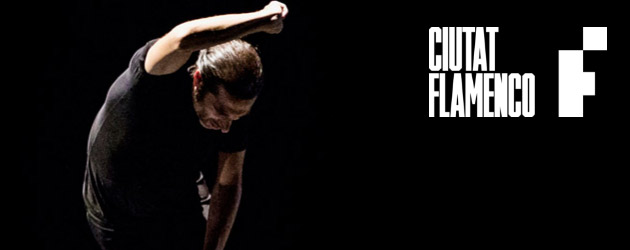Silvia Cruz Lapeña
Today through Sunday the 22nd, Barcelona's experimental flamenco festival is being held, this year, starring Israel Galván.
Like one big happy family. But fragmented. A modern kind of family. Each individual with a father and a mother, and there are also adopted people. That's how the group of artists was defined, led by Israel Galván, slated to perform at the Ciutat Flamenco 2016. A festival with three parents, the Seville dancer, in addition to Patricia Caballero and Pedro G. Romero, who act as curators.
That family party begins today at El Dorado with “Urdimbre Morente”, a show in which the Granada singer's son, José Enrique, joins forces with Pedro G. and Galván to remember him. About what they intend to do, they barely said a thing. «I don't know» said Galván, as is typical of him, when asked what his performance opening a festival that continues through to the 22nd would consist of.
No exams
«It's no longr a question of breaking barriers or doing something 'hip'. We've worked with naturalness, and that's how we'll perform», said Pedro G. at the press conference. For the curator, the artists of this festival are coming to Barcelona «without that adolescent thing of rebellion. There are no more exams» he said, highlighting the freedom the Taller de Músics and the Mercat de les Flors have given them to create and program.
Patricia Caballero insisted on the collective nature of a festival in which flamenco and modern dance dialogue «in a natural way» (Caballero with Uchi). And in which all participants have been given creative freedom, such as Niño de Elche.
It appears the process was collective, as well as the desire to learn and have a good time. The curators speak of the project as a metaphor for «a new way of doing a festival», like a bunch of diverse threads, origins and energies. But without a doubt, one line stands out from the others: his name is Israel Galván.
Fla.co.men with epilogues
The principal work is Fla.co.men, a show that the choreographer, winner of the National Prize for Dance, presented at the 2014 Bienal de Sevilla, and which will be seen in Barcelona for the first time. This might be the work of Galván's that best sums up how he views the art-form, «The music takes center stage. I am a musician», says the dancer. And to achieve this, he not only uses his body, as he explains, but is also accompanied by a first-rate back-up: David Lagos, Tomás de Perrate, Elena Cantón and Caracafé.
Fla.co.men will be performed twice, Friday and Saturday, and each performance will have a different epilogue. On Friday it will be El Güito, dancing a soleá which bears his name, and on Saturday, dancer Cesc Gelabert will do his own version of the same thing. Interpretation of an interpretation, also right in Galván's line, who is not debuting in Barcelona, but feels he is bringing the birth of something new.
Time to try other things
«I think this festival could be the start of a different way of doing things», explained the dancer, for whom flamenco is an individual activity. «But I've gone as far as I can dancing solo, which is why in my next show I'm for a fiesta that needs to be done in a group».
In this festival, Galván will no doubt try things that will be in that future show. Perhaps the performance of Minake Seki, or the fiesta organized by El Junco with David Palomar and Roberto Jaén in El Carmen. Or perhaps some fruit extracted from the laboratories offered by Caballero, or from Israel's encounter with the audience, an unusual closure for a daring festival.
The curators of the Ciutat Flamenco are aware their proposal is a difficult one to explain, but they're not worried about the audience's reaction. «It's an honest proposal that comes from truth. If someone doesn't get it, that's their problem», declared Caballero. Pedro G. preferred to appeal to the audience's freedom, whom he asks to let themselves go. «The idea is that this festival should be a pleasure, not a wish», said the organizer. Beginning today, it's the spectator who will judge the outcome.
